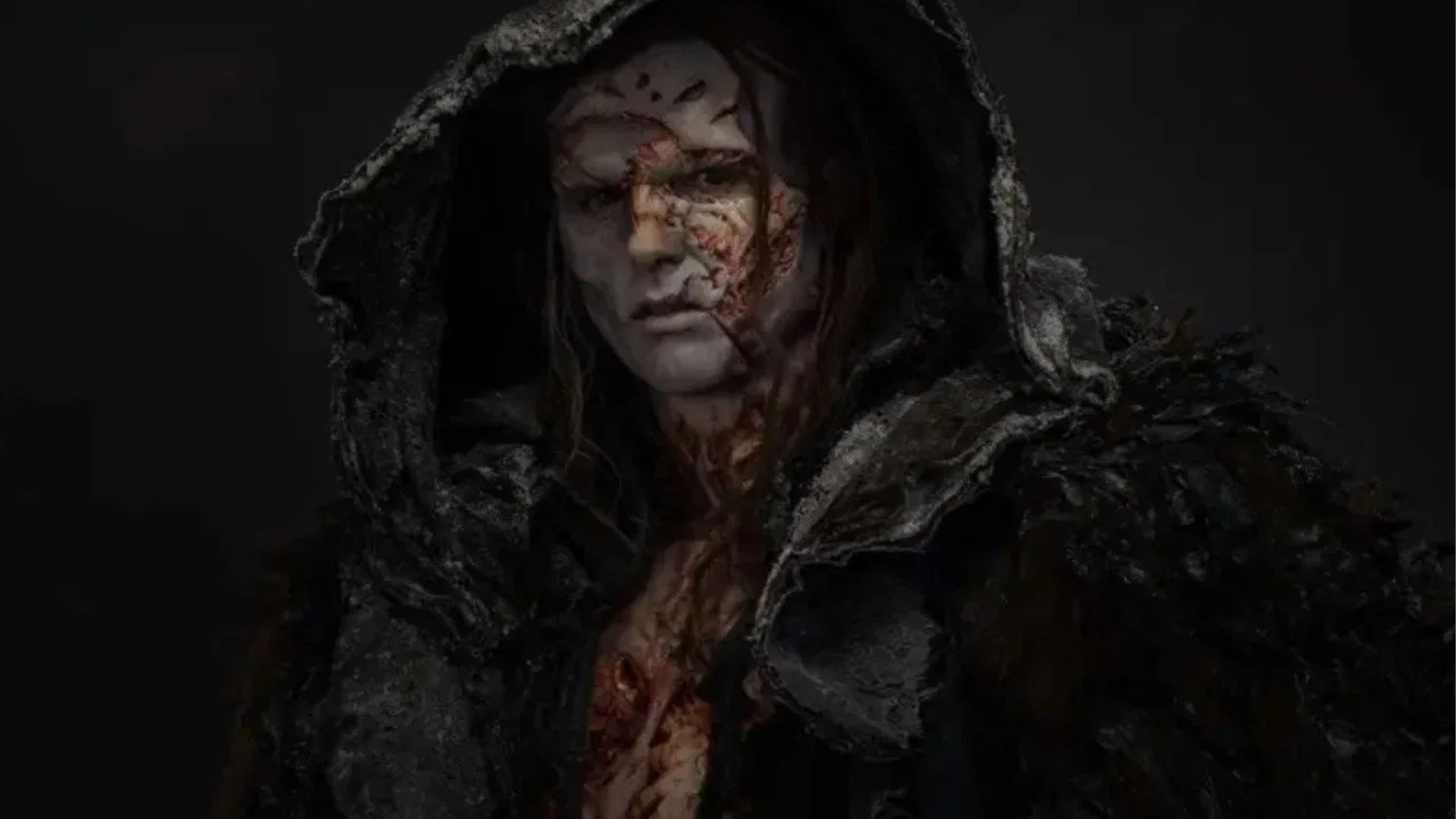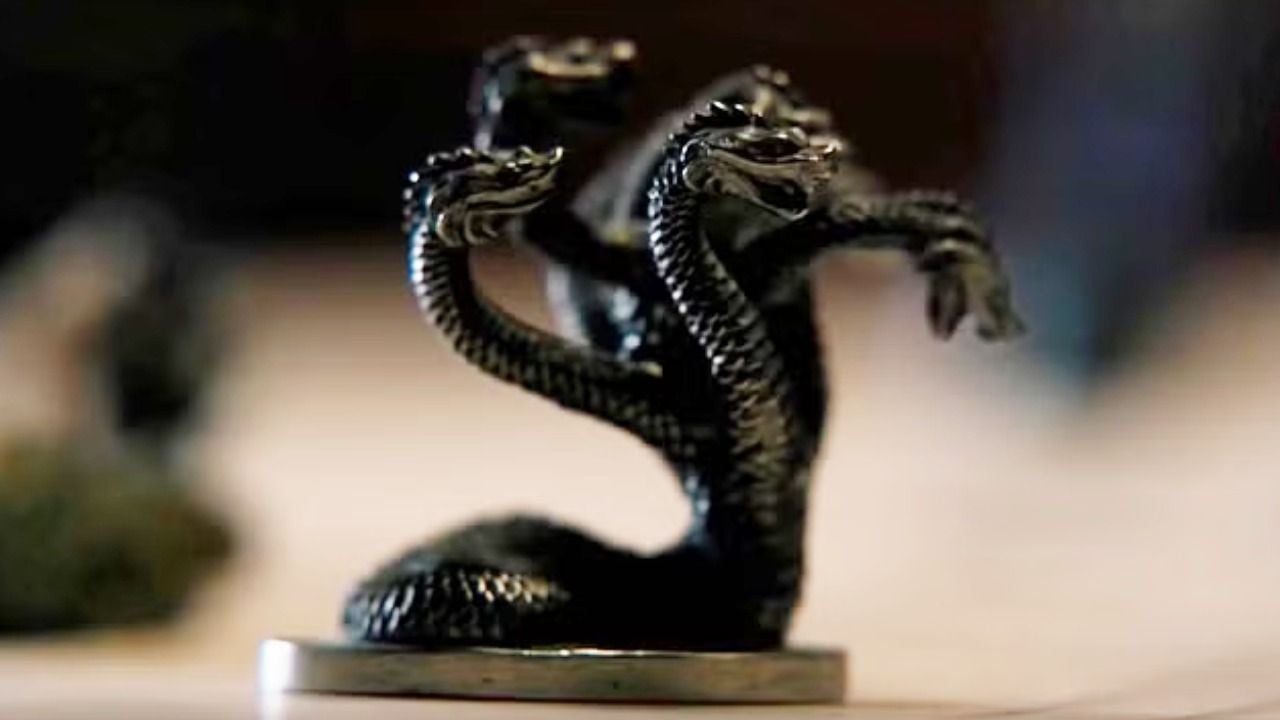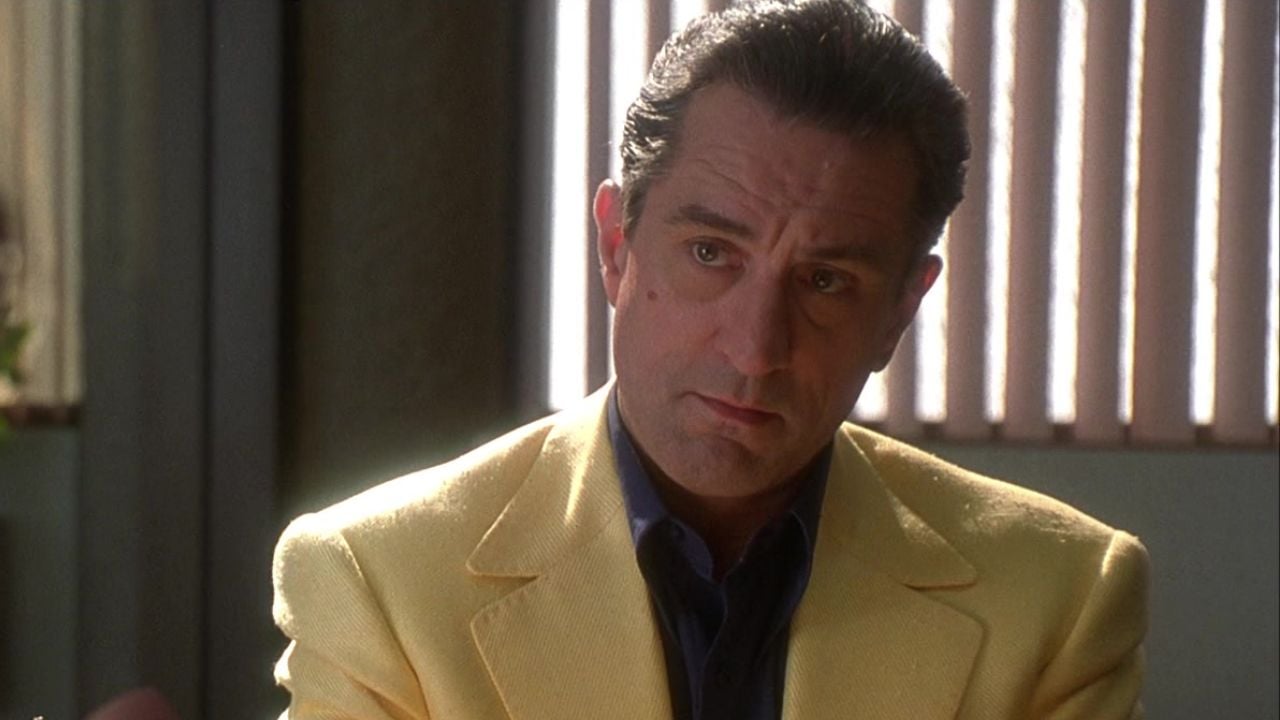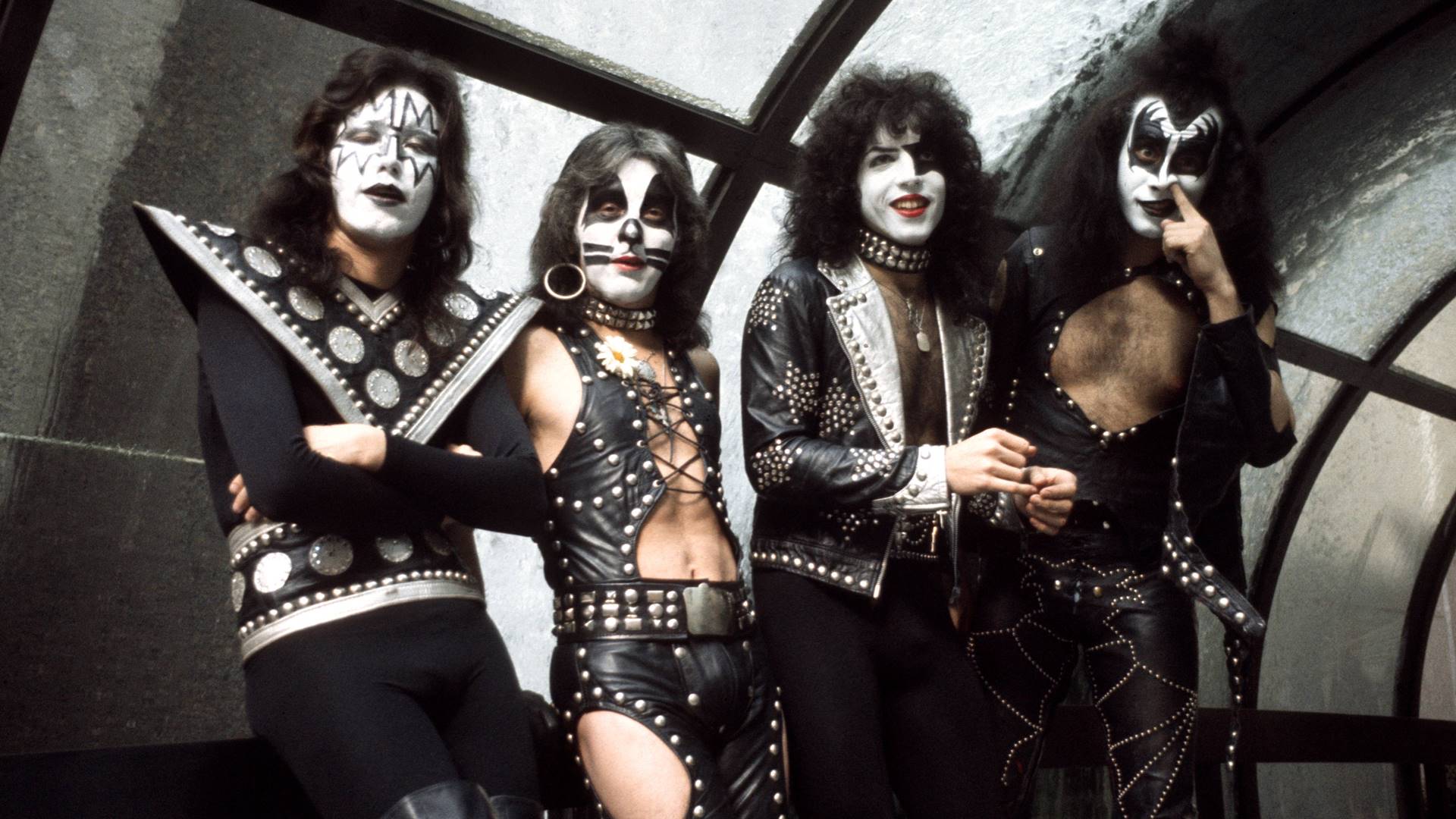The Irresistible Rise of Emma Benestan
Let’s not be afraid of words: Emma Benestan is very beautiful and imposing. Her large size makes her tall, even sitting on the sofa in a room of the Normandy hotel in Deauville, transformed into a living room for this interview. Her long wavy black hair, like her equally black eyes, have this Mediterranean grace and her face has the fine features of a Greek statue. Let’s say then that the French-Algerian screenwriter and director, born in 1988 in Montpellier and author of feature films Fragile AND Animalshe could have been in the picture, be an actress. But it is behind the camera that she is making a name for herself. And if this name is not yet well known to the general public, it is only a matter of time before it is on everyone’s lips.

Member of the jury of the revelation of this 50th Deauville American Film Festivalwe wanted to meet her to find out more about her cinema, about her work with Abdellatif Kechiche for whom she edited in particular Mektoub, My Love: Song One. But also because, having entered the cinema after studying editing at the Fémis, she is very active behind the scenes of this sector, where it is in a collective dynamic that she began to reread the scripts of her friends, before starting to write herself. Without her, perhaps Dump dog of her friend Jean-Baptiste Durand – she is co-author of the meeting between the director and Raphaël Quenard – it would not have been this magnificent film, César for best first film and César for best new actor 2024.
You are part of the Revelation Jury of the 50th edition of the Deauville Festival. What is your relationship with American cinema, which we celebrate here?
Emma Benestan : I will present here my favorite movie, the one that made me want to make movies: Imitation of life (Mirage of life in VF) by Douglas Sirk. I was influenced by American cinema, my father watched a lot of westerns and big melodramas, including the westerns of Douglas Sirk and John Ford. American cinema is therefore the beginning of my cinephilia. It is the dream, the emotions, the adventures and the great spectacle. And at the same time they are also stories about the question of identity.
Who are we, where are we? I find it extremely impressive how American cinema addresses these questions with great ambivalence and force.
To me, who am Franco-Algerian, this cinema speaks to me in particular. It is a cinema that represents diversity on the screen, without it being the subject. This is also what I try to do in my cinema. See Will Smith in The Great Plains or Morgan Freeman in Robin Hoodthis is what American cinema does, seeing great characters of diversity. I think that inside Animal as in Fragile… I’ve always wanted that in my cinema. Diversity is not the topic, and that’s why I think it’s political.

It is an assignment that brings your cinema closer to that of Abdellatif Kechiche, with whom you have worked a lot.
Emma Benestan : Yes, completely. When I turned 19, I watched The Seed and the Mule and I had the same feeling as when I discovered it Imitation of life. I cried and said to myself: “ah! finally…”. I felt less alone. When we grow up as teenagers with a rather negative representation of the culture we come from in the media, we ask ourselves many questions. I think that in Abdellatif, in his work, we see romance, living people, joy. And not just misery, suffering, roles in which we are anchored to a form of violence. When talking about social issues, Abdellatif presents the characters larger than life. These are characters who want it all.
In Voltaire’s faultthe character wants love, in The Seed and the Mulewants to open a great restaurant… As always in Imitation of lifeThese are characters who want something but are trapped in a system. However, they remain passionate and that speaks to me a lot.
They are films about characters, but also about characters who are very much rooted in their territories, who have their own identity.
I think of a friend, Jean-Baptiste Durand, who made Dump dog and which I collaborated on. I am very happy with his success, because he carried out his film with such sincerity and accuracy. It did me good because I told myself that people wanted to return to films in which the territories are not interchangeable, in which the territories have a strength, a way of speaking and thinking. Pagnol’s cinema did it in its own way, I find it very beautiful when a setting tells something. I have the impression that with everything that is happening at the moment, after many things, we want to look precisely at the places, at what is specific there, to show something universal but through something very local.
This is also what Thierry de Peretti does with his films on Corsica, recently filmed with In his image.
Yes, it’s a great example, Thierry de Peretti is digging deeper and deeper into his territory. We have the feeling that he loves Corsica but he also criticizes it, he looks at a certain system. I find it very strong, he makes this territory a character with its ambivalence and its darkness, I really like this cinema. When I started AnimalI was thinking a lot about Chloé Zhao’s first film, The songs my brothers taught meQHe spoke directly about this, about people on the reservation questioning their situation. He continued this work in The KnightThen Nomadland.
I just wanted to talk to you about Dump dogbecause without you this film perhaps would not have seen the light. When we met Raphaël Quenard in 2023 in Dump dogHe indicated that she played a key role.
Emma Benestan : They are two very talented guys. It’s funny because we talk a lot about male-female relationships right now, and it’s beautiful this male-female friendship that we can have. With JB, on Dump dogwe asked ourselves a lot about this toxic masculinity, and also about the female character.

Raphaël was originally a student I attended in the theater course at Mille Visages, 8 years ago. He had no agent, nothing. He made his first short film with me in a Mille Visages workshop. I always believed in him because he had something exceptional, he is a boy who was and is extremely curious. He has a passion and a crazy desire to learn. JB was right at the beginning of the writing of Dump dogRaphaël was trying to be an actor. I acted as a bridge because it was obvious. From the first treatment of Demolition dog, I immediately thought of Raphaël.
It’s a very beautiful story.
Emma Benestan : Life is really beautiful when that happens! It’s rare, there was a clear fit. Maybe if I hadn’t told JB, or if I hadn’t talked to Raph… they wouldn’t necessarily have been able to find each other, because they were each in different places. At this point they were both trying, but they weren’t “visible” yet. It’s a beautiful story, I’m super happy for both of them and I also know they are very grateful. I made the bridge.
For the record, at the time I was getting ready FragileJB funded Dump dogand there was almost a schedule conflict! I wrote the role of Raph in Fragile for Raphaël, so this situation was funny. In the end, he shot it later. And I was able to tell JB what Raphaël’s tendencies were during the shooting.
I feel surrounded by directors, of my generation, who question themselves and who want to do things differently. We carry each other, we think about cinema together. I don’t think you can do it alone. I can talk about many people who have helped me on my journey, who have put me in touch, who have believed in me. Together we can be more demanding.
Is this notion of “collective” important in your approach to cinema?
Emma Benestan : There is a documentary that I really like, Three friendsabout Alfonso Cuaron, Guillermo del Toro and Alejandro G. Inarritu. We see them doing it, going from one cut of one to another, discussing their versions… It’s extremely rich. I’ve always identified with “family” directors, like Cassavetes, Rohmer, and also with people who develop friendships, epistolary bonds between writers for example.
We feed each other and it’s nice to be united. We are in such a time… When I teach drama classes, I insist that the friendships that will be created between the students will contribute to who they will become.
At first I was an editor, I worked with Abdellatif and, because I love reading, it was by rereading my friends’ scripts that I became a consultant, then a scriptwriter. I liked helping others, then at a certain point I was asked to do more. And that’s how I became a professional. The collective is very strong, as Michael Douglas emphasized during the opening ceremony when he said that a director is surrounded by an “army”. And I’m very moved to see so many people here in the theaters. Cinema brings people together and that’s very beautiful.
Source: Cine Serie
Ray Ortiz is a journalist at Gossipify, known for his coverage of trending news and current events. He is committed to providing readers with accurate and unbiased reporting, and is respected for his ability to keep readers informed on the latest news and issues.









